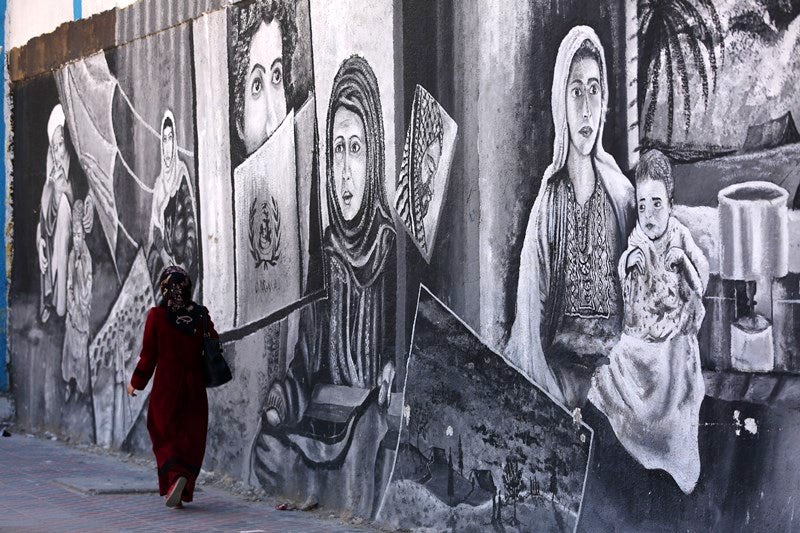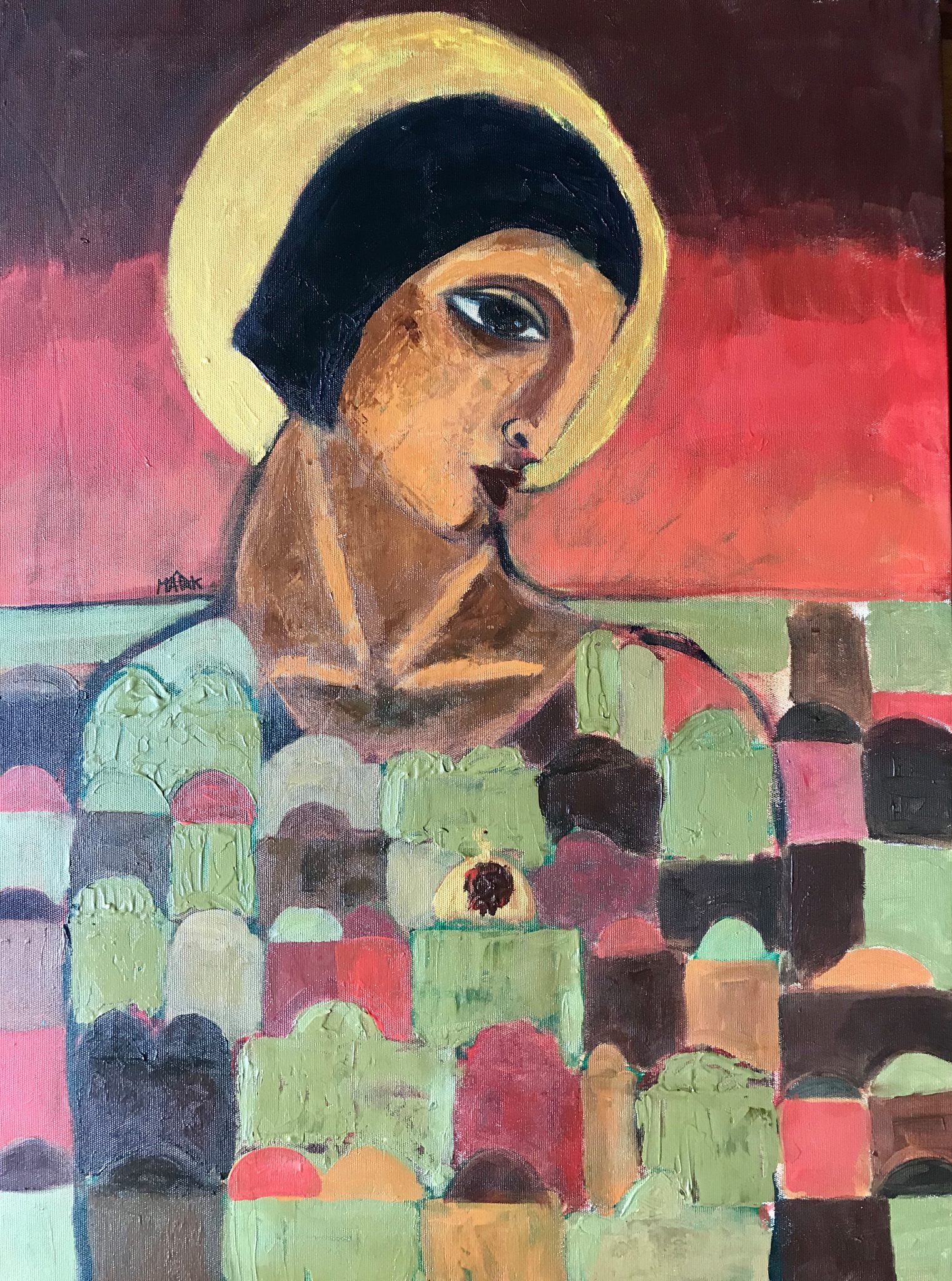
It is very hard for a young woman in Gaza to give birth to her first child while seeking a divorce. Nur, 25, lived with her husband for eight years before escaping to her father's house when she was nine months pregnant. The trigger, however, was not her husband per se; it was her domineering mother-in-law, with whom they lived because they couldn’t afford their own apartment.
Domestic violence is a significant problem in Gaza. According to the latest statistics from the Palestinian Central Bureau of Statistics, 51 percent of women in Gaza have been subjected to a form of violence within the household; 76 percent said they had been psychologically abused and 35 percent said they had been physically assaulted.
Men are most often the perpetrators of the mistreatment of women. However, it also is true that in some cultural contexts, other women are the culprits. This is true even in—perhaps especially in—Gaza, a largely male-dominated and conservative society.
“Mothers-in-law all over the world are often jealous of their daughters-in-law, fearing they have taken their sons away from them,” says Sohir el-Baba, a lawyer for Gaza’s Women’s Affairs Center. “This is exacerbated, and thus more common, in Gaza because of the poverty, restrictions on movement and tradition of early marriage.”
Poverty anywhere breeds stress, depression and frustration, causing family members living together in close quarters to lash out. In Gaza, there is the added reality that while it is a highly male-dominated society overall, women rule the home, and when a new bride moves in (few newlyweds can afford their own apartment) the older woman is essentially the “queen mother.” This means that in some households—usually those with lower incomes and adults without advanced education—the mother-in-law treats her son’s wife as somewhat of a slave.
Nur: a Gaza Cinderella (without the prince)
Nur married her cousin when she was 17. Her mother forced her to quit school and marry with just four months in between, despite her father’s objections. Her new husband and his family were not willing to let her complete her education.
“I was very good in English and math; I hated Arabic, but I liked school,” Nur told me with tears in her eyes.

Because Nur’s cousin is a relative, he was not required to provide a full dowry—money paid to the bride for clothes and other possessions needed when she leaves her family’s home. Men who come from families that are poor themselves often prefer to marry their relatives to save money.
Three days after her wedding, Nur’s mother-in-law yanked her gold earrings from her ears, wounding her to the extent that she required three stitches. Even her 14-year-old sister-in-law was allowed to hit her severely.
Nur was responsible for the cleaning and cooking in her new home.
"I worked from dawn to midnight,” she says. “I can normally do this, but I was not allowed to eat or drink a drop before my husband came home, which was usually around midnight."
Her mother-in-law counted every egg in the refrigerator to determine if Nur had eaten and punished her if she did.
Nur was not allowed to visit her family or tell her father about how miserable she was. She says her husband tried to protect her but could not openly disobey his mother.
"He was good with me. I really love him,” Nur insists. “He used to give me sandwiches that I could secretly eat, which he hid from his mother so she would not know he cared for me.”
After eight years of this treatment, however, Nur managed to escape to her parents’ house. There, she gave birth to a girl who weighed only a little over three pounds. Her mother-in-law prevented her son from seeing his daughter or naming her. The child is now 4 years old and is unable to speak or hear.
“She doesn't know what her father looks like,” Nur says. “I want to provide her a life that is better than mine, but I cannot do this by myself."
Nur has tried to obtain a divorce, but her husband does not want one – or does not want to pay the monthly sum he would be required to give her for support.
Gaza law
According to Gaza’s personal status law, once a spouse reports that the other has caused her physical or psychological harm, the judge must order the couple to work for at least a month to overcome their conflict. If they are unable to do so, the judge chooses two men – one from the wife’s family and one from the husband’s family – to investigate who is most to blame.

If they conclude the wife is the problem, she must pay her husband the equivalent of her dowry and she receives no other support. If the husband is the cause, he is required to pay his wife the same amount. In addition, he must pay his wife a monthly stipend (decided by the judge) for as long as she lives in her family's house. However, by refusing to divorce their wives, men can avoid this penalty. In other words, women who leave their husbands very often are left poor and struggling. (And even that assumes their families accept their return; in some cases, they don’t and the women have no choice but to stay with their husbands. Living alone is not culturally accepted for women in Gaza and would be prohibitively expensive for most in any case.)
Amal: renounced by her new family
This was the fate of Amal, a 23-year-old medical secretary who married two years ago. Mistreatment by her mother-in-law began almost immediately after she moved in. Amal’s mother-in-law hit her and also urged her son to strike her when she refused to remove her hijab in the presence of his brother. (In the Islamic tradition, women are allowed to remove their hijab only in the presence of their husbands and fathers-in-law.) Amal’s husband who was unemployed and relied on his father for pocket money, obeyed.
Amal says she suffered other indignities as well. In Gaza, men make purchases outside the home and since her husband was unemployed, she was forced to rely on her father-in-law.
"I had to ask my father-in-law to buy me feminine hygiene products when I had my period,” she says. “I never asked my father to buy me such things; how can I talk to my father-in-law about it?"

When her father-in-law attempted to hit her and her husband merely watched, Amal had had enough. Now pregnant, Amal returned to her father's house. Her husband refuses to provide any support. She says she asked him to come see the baby and name him, but he responded that he would have nothing to do with the child.
In court, Amal asked for monthly financial support, but her husband claimed he is not the father. His mother spread the rumor that her son never had sex with Amal. When Amal heard this, she insisted on a divorce. Amal is now waiting for a court date, but her lawyer says she might have to relinquish her financial rights to win her freedom.
Maryam: the way it should be
Fortunately, the fate of Nur and Amal is not universal.
"In other cases, mothers and mothers-in-law are the biggest source of support young women have,” says Sohir, the lawyer for the Women's Affairs Center. “Girls who have their mothers’ and mothers-in-law’s support are stronger and more able to fight for their own rights."
For example, Maryam, 28, is fortunate. She is a graduate from a teaching college who married four years ago. Her mother-in-law helps Maryam with housework and asked her daughters to be friendly with her. They counsel their son and brother to be a good husband.
Maryam’s parents divorced when she was 17. Her father ordered her not to visit her mother and the two grew apart. However, Maryam’s mother-in-law has helped re-establish that relationship. One day, her mother-in-law called Maryam’s mother and asked her to come to their shared house. This was the first time Maryam had seen her mother in four years, and it was also the first time her mother had seen her granddaughter.
“I've become very strong with my mother-in-law by my side,” says Maryam. “If I was alone, I'd never tolerate this life."











